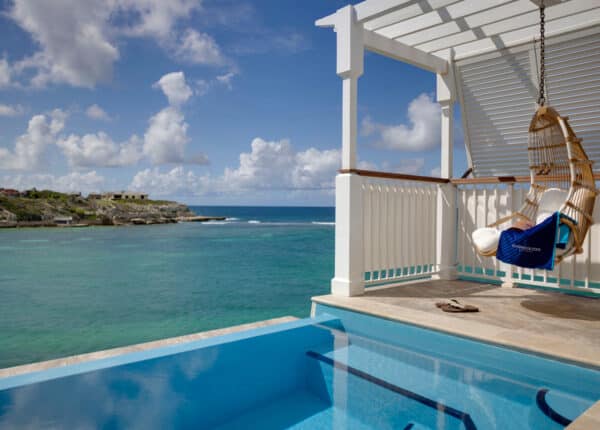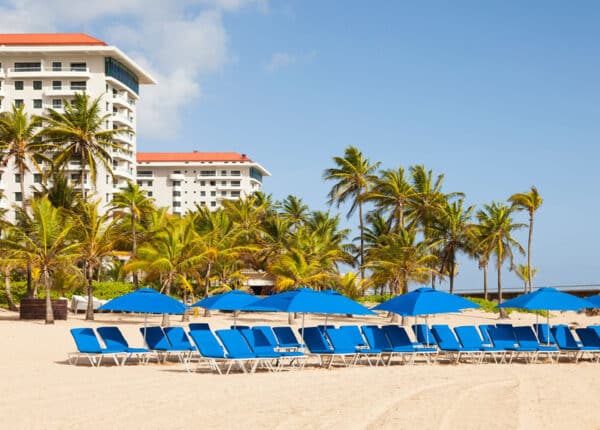Op-Ed: Rum Subsidies in Puerto Rico and the US Virgin Islands
By Frank Ward
Op-Ed Contributor
RUM HAS A SPECIAL PLACE in the hearts and minds of Caribbean people. It is the product of an industry mainly comprised of small, local distillers which, as a significant economic operator, brings much needed foreign exchange, adds value to primary agriculture and contributes to the revenues of governments struggling to cope with the consequences of severe economic reversals.
The Caribbean is not only rum, but rum is truly of the Caribbean and through these small producers forges an identity associated with the islands and countries from which it comes.
That is why measures being taken by the governments of the United States Virgin Islands (USVI) and Puerto Rico to provide rum producing companies located in these territories with huge subsidies using a programme that returns to these territories the excise taxes on all rum sold in the mainland USA have, in 2011, prompted the West Indies Rum and Spirits Producers Association Inc. (WIRSPA), the regional industry association to ask CARICOM governments to formally express their deep concern to the US Administration.
These companies, which collectively account for the bulk of sales of rum internationally, also benefit from the excise taxes collected on CARIFORUM rums sold in the USA.
CARICOM wrote to the US Trade Representative in December of 2011 and subsequently raised the issue at a meeting of the US-CARICOM Trade and Investment Council in March in Georgetown.
More recently, in June 2012, a technical meeting was held between CARICOM (and included the Dominican Republic) and the representatives of the USTR and Departments of State, Commerce and the Interior. In addition, subsequent to a meeting of the CARICOM Heads of Government in July 2012, a letter expressing the concern of the region was written to President Barack Obama.
The Caribbean’s case revolves around the fact that subsidies offered by the USVI and Puerto Rico are inconsistent with the obligations of the US at the World Trade Organization, in as much as they involve prohibited export subsidies, make use of discriminatory taxation, and cause adverse effects to the interests of other WTO members — in this case, the countries of CARIFORUM.
Specifically, the region’s concerns relate to the application by the USVI and Puerto Rico of a “cover-over” programme which has an admirable developmental purpose and which remits 98 percent of all excise taxes collected on rums sold in the US back to these territories.
In 2010, this amounted to approximately $450 million, and includes the excise taxes paid on CARIFORUM rums sold in the USA.
In order to secure a greater amount of this “cover-over” support, the USVI and Puerto Rico have, since 2008, offered extremely generous concessions, subsidies and other long-term support for rum production in those territories.
Estimates suggest that, in some cases, the value of the operating subsidies alone exceeds the actual production cost per litre of rum. It is also believed that the combined new production capacity resulting from the subsidies offered will be equivalent to at least 80 percent of current US rum consumption.
Unsurprisingly, rum producers in the Anglophone Caribbean, Haiti and the Dominican Republic have viewed this development with alarm.
So, too, have CARIFORUM governments which have recognized the dangers for themselves and the region’s largest agriculture-based export industry which generates an estimated $500 million in foreign exchange and well over $250 million in tax revenues, which is to say nothing of the industry’s role as an important provider of employment or its close relationship to tourism.
What is important to understand is that this involves significant matters of principle over subsidies and fair competition, key components of the WTO regime on trade in goods.
For this reason, the dispute is at a government-to-government, rather than an industry level.
There is also a sense that the manner in which the cover-over programme is being used raises serious questions about the consistency of the United States in adhering to its obligations at WTO.
The United States has for many years taken a leadership role in promoting strong WTO disciplines on trade distorting subsidies, so it is surprising that it has allowed a situation of competitive harm to arise.
CARIFORUM countries may not have considerable political and economic muscle to flex in Washington, London and Brussels, but the region has the facts and strict rules of world trade on its side.
While there is understanding across the region of the economic problems facing the Caribbean territories of the US, by allowing a development programme to be used to subsidize rum production in those territories, the US is damaging one of the few competitive industries that CARIFORUM nations have and which helps underpin their small and vulnerable economies.
The concern is that if the matter goes unchallenged, it will result in CARIFORUM producers seeing their share of the US market wiped out by subsidized product, and induce other rum-producing companies to locate in the USVI and Puerto Rico and benefit from such largesse.
Frank W Ward is the chairman of the West Indies Rum & Spirits Producers’ Association. The views are his alone and do not necessarily reflect the views of the WIRSPA.
Note: the opinions expressed in Caribbean Journal Op-Eds are those of the author and do not necessarily reflect the views of the Caribbean Journal.







